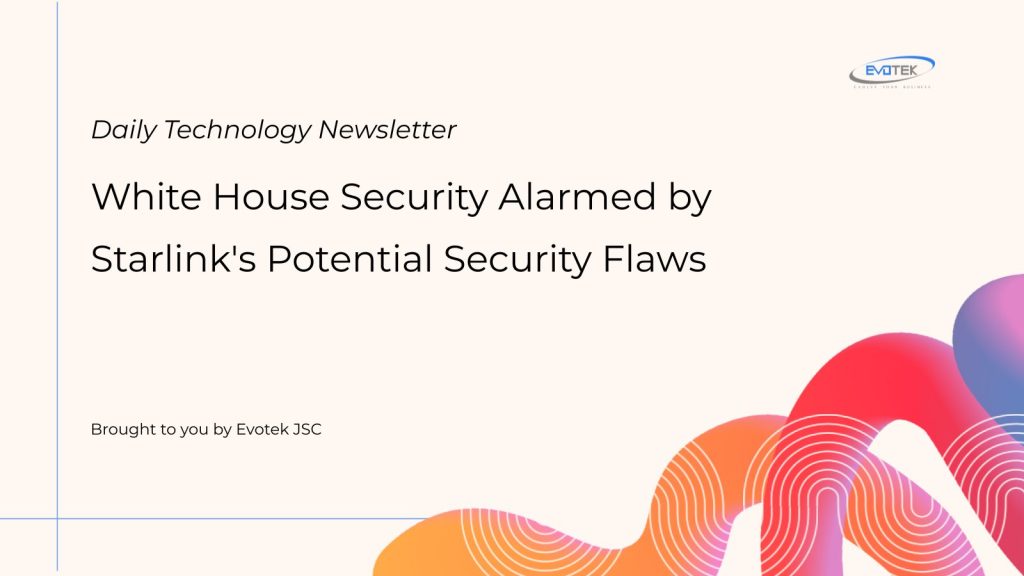Security personnel at the White House reportedly raised concerns about the security risks associated with Starlink satellite connections, fearing they could circumvent safeguards designed to prevent data leaks and hacking attempts.
According to sources familiar with the matter, the installation of Starlink within the White House complex bypassed standard communication protocols and oversight. This raised alarms among those responsible for managing White House communication systems.
Unmonitored Data Transmission
The main concern revolves around the unmonitored nature of Starlink connections. Experts feared the system lacked the necessary controls to prevent sensitive information from leaving the complex undetected or to block potential intrusions by hackers. The absence of user-specific logins and comprehensive tracking mechanisms on the “Starlink Guest” WiFi network further exacerbated these concerns.
One former government official emphasized the contrast between the strict security measures typically in place for White House IT systems and the relative freedom afforded by Starlink:
“Starlink doesn’t require anything. It allows you to transmit data without any kind of record or tracking. White House IT systems had very strong controls on network access… With a Starlink connection, that means White House devices could leave the network and go out through gateways bypassing security.”
Secret Service Response
When contacted, the U.S. Secret Service acknowledged awareness of the Starlink installation but did not deem it a security breach, citing intentions to improve internet access on campus. However, critics argue that the potential risks outweigh any perceived benefits.
Congressional Scrutiny
These security concerns have reached Capitol Hill, with some former White House officials alerting Democrats on the House Oversight Committee. Representative Stephen F. Lynch (D-Massachusetts) stated:
“Brave whistleblowers have shared concerning and vital information with the Committee… It could have the potential to undermine our national security by exposing sensitive data and information to hackers, our adversaries, or those wishing to do Americans harm.”
Wider Implications
The concerns extend beyond the White House, with reports suggesting Starlink is being used at other government agencies. This raises broader questions about the balance between technological innovation and robust security protocols in sensitive government environments. The incident highlights the critical importance of comprehensive monitoring and access controls to protect against data breaches and cyberattacks, especially in locations of high strategic importance.

 日本語
日本語 한국어
한국어 Tiếng Việt
Tiếng Việt 简体中文
简体中文